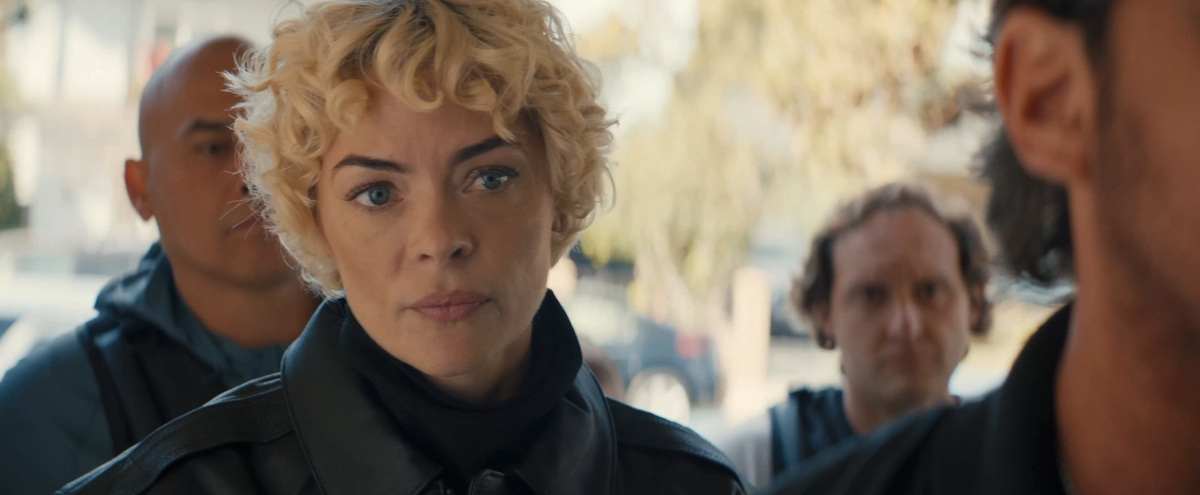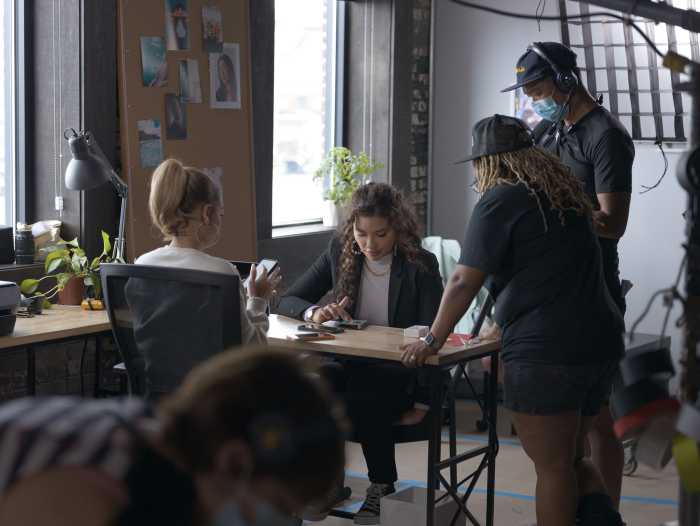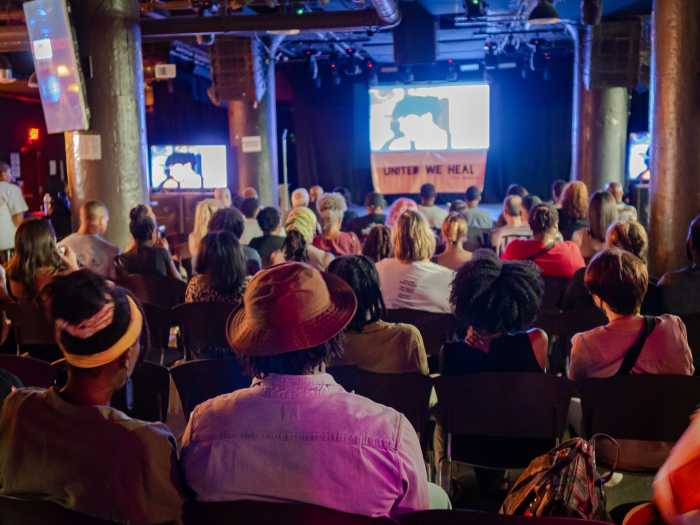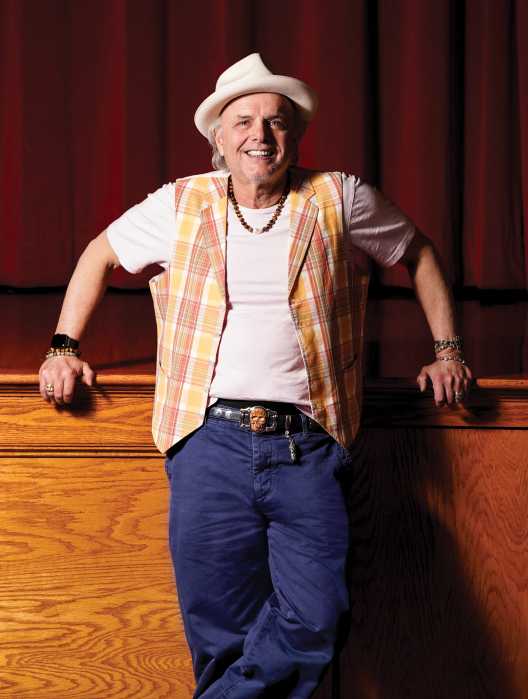In ‘Lights Out’, the world of underground street fighting is examined, but the punches packed are just the start of what really fuels this story. In this new feature starring Frank Grillo, Dermot Mulroney, Mekhi Phifer, Scott Adkins and Jaime King, we are introduced to a cast of characters with a lot to lose—especially for King’s Detective Ellen Ridgeway. In the story, Ridgeway is intertwined more so in the crime world than with the duties of her badge, but there’s a very human reason for that, or so, that’s what fueled King’s performance.
To dive a little deeper into the plot (which follows Grillo’s move from a homeless vet to becoming intertwined with this underground world) King sat down to discuss more of her character and what really makes her tick. And it turns out a ton of research went into this performance, even before it was ever landed.
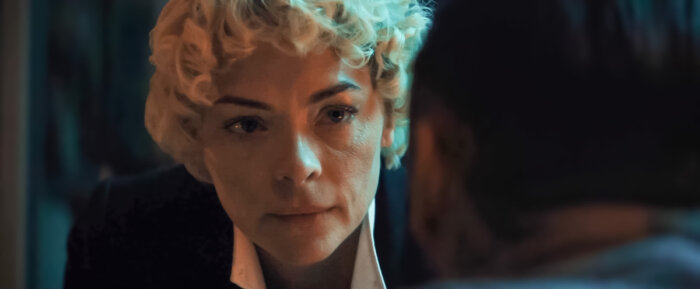
What drew you to this role or this project?
What really stood out for me was that on the page, I knew that the character was there, but not there…There was something that I knew that I needed to find out about her and something that I knew I could help to root in the truth. I have a deep fascination with exploring people in positions of authority, what calls people to service, and what happens when that call to service gets corrupted and why it gets corrupted.
More and more we’re seeing films that will give parts to women that were technically written for a man kind of thing. There’s a sterility about that, that I don’t particularly enjoy and I find that we’re missing this divine feminine, the divine mother in our filmmaking process. That was something that was really important to me to assist in. I spent a very long time working with Christian (Sesma), the director, doing a ton of research and I had been researching detectives and officers and the military for many, many years already. It was something that was really important to me— obviously to make her real, because that’s an actor’s job, but [also to] root it in a truth, a real truth, a real need, real stakes and a real story, because that wasn’t for her written in the script.
You mentioned doing research for years and also finding a reason why someone in power might be corrupt. What did you find out in that regard for this role?
It essentially comes down to three things: It would have to be that you stole something from the cartel, or typically it has to do with a drug or an alcohol problem, or a gambling problem. And I was like, okay, [Detective Ridgeway] doesn’t have those things.
So, I discussed it with the director, I was like, she has to be a mother, and essentially her husband has to be dying because that’s not her or what she wants to be or do. However, she’ll do whatever the F it takes to make sure that her family is taken care of. And that’s really the stakes that I put in there, and rather than running around yelling and screaming at people, I really wanted it to be this quiet, powerful, very intimate experience when you see Detective Ridgeway.
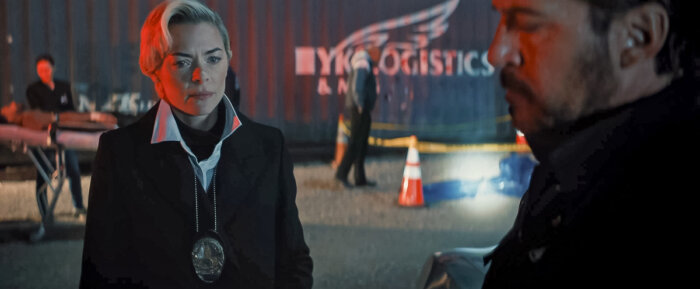
It’s so interesting hearing you talk about all that, because when I think of certain scenes now, the one where she says “It’s so hard to be a mother,” that must’ve been built off of what you created for her backstory.
It’s interesting that you brought up that moment because a lot of what I did was improv. And that’s what I loved about working with the filmmaker, was being able to fully realize her, because we’re not just playing a character. It is like I’m her and she’s me, and it’s really about the merging of how am I similar to Detective Ridgeway? And how am I not? Then utilizing all different kinds of processes to connect us together.
I really wanted to create an intention that anybody that was in front of me would feel like they’re the only person that exists. And so that gave me physically a way to move within scenes. That scene with, it’s “really hard to be a mother,” she means that, but she’s still got to do her job. So she’s saying to her, I know, and it sucks, but we got to do what we got to do.
Something interesting that I read in the director’s statement was, Christian saying that this isn’t just a typical fight movie and there’s a lot of humanness grounded in it. What do you think about that?
It’s true, and I never approached it as a fight film. I approached it as a very human story. I approached it from the story that it is for Detective Ridgeway, which is a story about family and loyalty and dedication and pain and grief and need, real need. We don’t know what people need. Rarely do we know, as we say, what people are really going through, and the lengths and the depths that someone will go to go to, even if that’s against every fiber of their being.
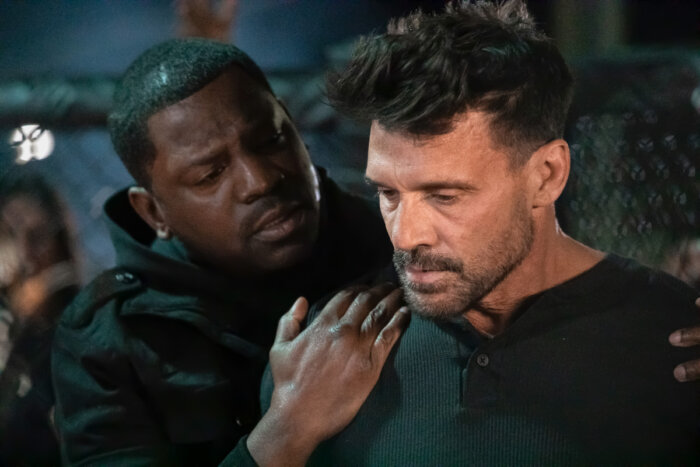
I think there’s something very powerful about just having those moments with her and with Frank (Grillo.) Frank lives a block and a half away from me, our families are very close ever since I was 26, and I’m 44 now. There’s a real humanness to him. So it’s not just about fighting, it’s about how we fight and why we fight. I think that’s super important. Or with Scott Adkins, who is trained in the theater in England, a brilliant, brilliant, dramatic actor. With a great story, it should give you something to walk away with and questions to be had and answered, because not everything is put out there in front of your face like oh, this is what’s happening. We need to have more complex characters like that shown on screen.
Quiver Distribution will release ‘Lights Out’ in theaters, on digital and On Demand Feb. 16.



